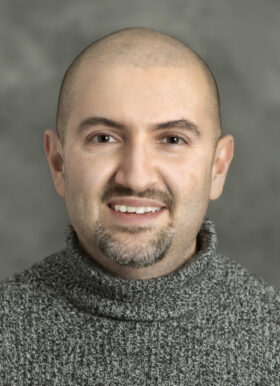
Titles
Co-Director, Physician Scientist Training Program
Education
BS (magna cum laude): University of Rochester, Rochester, New York (1998)
PhD: University of Virginia, Charlottesville, Virginia (2005)
MD: University of Virginia, Charlottesville, Virginia (2006)
Resident, Pathology: Brigham and Women’s Hospital, Harvard Medical School, Boston, MA
Boards
American Board of Pathology, Clinical Pathology
Recognition
Barry M. Goldwater Fellowship in Science and Mathematics, 1996 – 1998
Phi Beta Kappa Honor Society, University of Rochester, 1997
Magna cum laude graduate, University of Rochester, 1998
Donald R. Charles Memorial Prize in Biology, University of Rochester, 1998
NIH Medical Scientist Training Program, 1998 – 2006
Robert Wagner Prize, Department of Microbiology, University of Virginia School of Medicine, 2004
Michael J. Peach Award, University of Virginia School of Medicine, 2004
Chief Resident in Clinical Pathology, Brigham and Women’s Hospital, 2007
Paul E. Strandjord Award, Academy of Clinical Laboratory Physicians and Scientists, 2009 – 2011
American Cancer Society Institutional Research Award, 2012
Siteman Cancer Center Research Development Award, 2014
Young Physician-Scientist Award, American Society for Clinical Investigation (ASCI), 2015
M.D. Anderson Cancer Center Distinguished Scientist Lecturer, 2018
American Cancer Society Research Scholar Award, 2018
Research Interests
We are interested in how cells respond to DNA damaging agents, the signaling involved during such damage, and how these pathways are changed in pathologic states, particularly cancer.
Selected Publications
DNA-damaging chemotherapy reshapes cardiac-resident macrophage composition and function
Publication
CRISPR activation of the ribosome-associated quality control factor ASCC3 ameliorates fragile X syndrome phenotypes in mice
Publication
YTHDC1 cooperates with the THO complex to prevent RNA-damage-induced DNA breaks
Publication
RNA Damage Responses in Cellular Homeostasis, Genome Stability, and Disease
Publication
Assistant

Jennifer Schwierjohn
Administrative Professional
Contact
- Email: j.schwierjohn@wustl.edu
- Phone: 314-273-1743